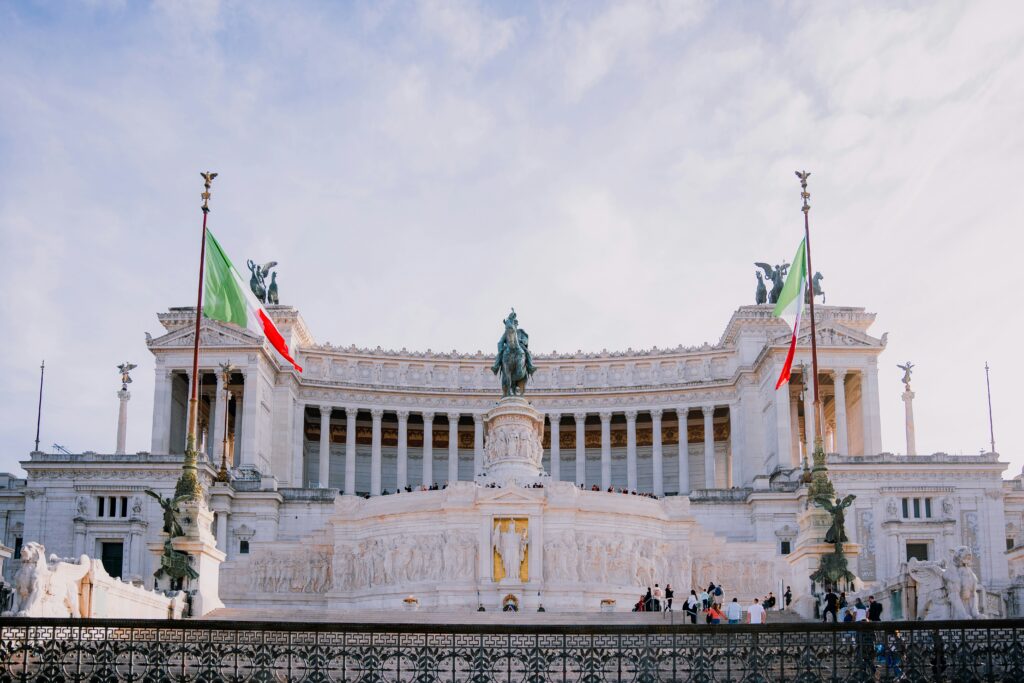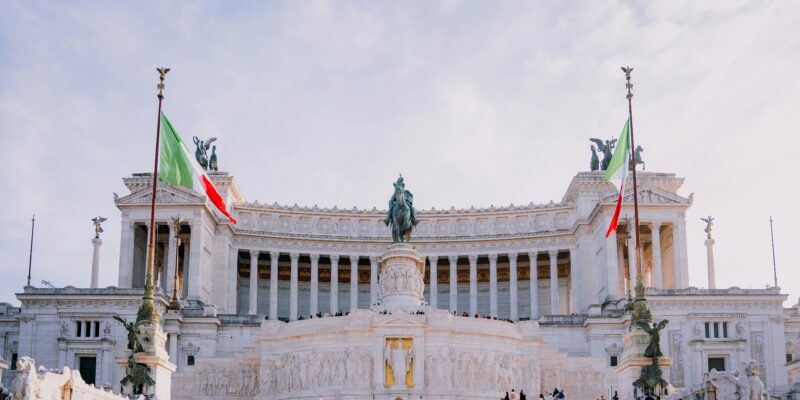
Weliton Soranzo, Unsplash, 2024
Italian Prime Minister Giorgia Meloni gave a speech critiquing the Ventotene Manifesto during a recent debate in Italian Parliament. The Manifesto is considered one of the founding documents of the European Union and is an important monument to the fight against fascism. The members of the Parliament expressed their disagreement with Meloni’s stance on the document.
On Wednesday, March 19th, Italian Prime Minister Giorgia Meloni sparked controversy in the Lower House of Parliament debate by expressing her opinion on the Ventotene Manifesto. The Manifesto, being an important founding document of modern Europe, is regarded with immense respect for its antifascist stance and a vision of a united Europe.
Meloni decided to mention it in the context of the demonstration that was held on Sunday, March 16th, at Piazza del Popolo, where the protestors cited the Manifesto. The Prime Minister stated that she hopes that the protestors did not read it because “the alternative would be scary”. Meloni took particular issue with the Manifesto’s stance on the necessity of a socialist revolution in Italy, abolition of private property, and critique of Italy’s democratic institutions. She concluded her speech saying that the document does not represent the European values: “I don’t know if that’s your vision of Europe, but it’s certainly not mine”. Meloni’s claim was met with sounds of disagreement by opposing members of the Parliament, and the meeting had to be put on hold.
The Ventotene Manifesto was named after the place where it was written — a small island in the Gulf of Gaeta called Ventotene. During Benito Mussolini’s regime, the island was used as a prison that housed political prisoners. Confined there, Altiero Spinelli and Ernesto Rossi wrote the manifesto in 1941, outlining their critique of the use of the nation-state concept to promote hostility between the countries. Contrary to Meloni’s reading of the text, it does not call for a socialist revolution and abolition of private property, but rather for the abolition of the idea of division of Europe:
“The most pressing problem, without whose solution progress is merely an illusion, is the definitive abolition of the division of Europe into national, sovereign states” (Spinelli and Rossi, 1941).
This is the central claim of the text, which constitutes its significance for the idea of the European Union; this is why the Piazza del Popolo protesters felt the need to cite it during their demonstration. Spinelli and Rossi called for the redistribution of land to be owned by those who cultivate it; they called for working-class emancipation and the creation of a European Federation. The critique of democracy that the authors underlined in their text was only natural to take place in their situation: the democratic institutions of the time failed them as they found themselves imprisoned for their political views.
Italy, among many other European countries, recently was swept by the “turn to the right”, which allowed for Giorgia Meloni, the leader of the conservative party Fratelli d’Italia (Brothers of Italy), to be elected. The party, known for its populism and right-wing stance, is often accused of fostering neofascist views. Therefore, it is natural that Meloni would be sceptical of the manuscript that praises some of the socialist ideas while critiquing the idea of nation.
Giorgia Meloni, who is usually cautious in her choice of words on divisive topics, chose to cite the lines that, out of context, may indeed paint an image of the authors striving for a communist revolution that will put an end to democratic institutions. However, Giorgia Meloni, despite her obvious political alliances, cannot be called a eurosceptic. At least, not in a way that is customary for a European right-wing politician — she doesn’t question the authority of the EU and, what’s more, takes an active stance in some of the important joint affairs, such as advocating for aid for Ukraine. Therefore, it is difficult to believe that the motive for her speech in the parliament was to undermine the legitimacy and adequacy of the ideas that the European Union was built on. What was the thinking behind her claims remains to be seen in her forthcoming statements and actions.
While there should always be a place for debate in the Parliament, such statements as Meloni’s are bound to raise some questions. One thing is for certain: it is crucial to acknowledge the history of one’s own country and its founding documents. By taking statements out of historical context in order to support one’s own political agenda, one risks triggering a wave of historical revisionism that will leave everyone worse off.
Sources and further readings:
Giorgia Meloni. Britannica. March 21, 2025 <www.britannica.com/biography/Giorgia-Meloni> Accessed 27 March 2025.
Matthew D’Auria. ‘The Ventotene Manifesto: the Crisis of the Nation State and the Political Identity of Europe’ in European Identity and the Second World War’edited by Menno Spiering and Michael Wintle, Palgrave Macmillan, 2011.
Spinelli and Rossi. The Ventotene Manifesto. 1941
The shapeshifter: who is the real Giorgia Meloni? The Guardian. September 19, 2924 < https://www.theguardian.com/world/2024/sep/19/shapeshifter-who-is-the-real-giorgia-meloni-italy-prime-minister> Accessed March 26, 2025.
Ventotene Manifesto not my Europe says Meloni. ANSA English. 19 March 2025 <https://www.ansa.it/english/news/2025/03/19/ventotene-manifesto-not-my-europe-says-meloni_fa6a3169-8232-4f40-b875-d9a124c6bc25.html> Accessed March 26, 2025.








Comments